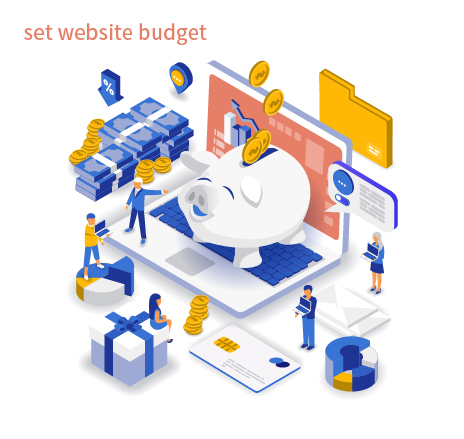How to set your website budget?
Designing the website considering the purpose of the website:
Setting a genuine budget starts with having an idea of the purpose of your website, so let’s start there. Important things to consider include:
- How much customization do you want? Will a standard WordPress theme suit your needs? Do you need a custom design from the ground up? Something in between? Do you have descriptions and images for your new site, or will photos need to be taken?
- Ask yourself the following content related questions:
Do you want it to capture leads?
Are you selling advertising space?
Is it just a brochure site (hopefully not)?
Does it need to integrate with certain software?
- Do you need more than an elementary commerce form? Do you want to offer downloadable PDFs or other information? Do you want leads from various forms to be tracked? Will you need e-commerce, then what type of payment options? Is there any other type of practical requirements, such as integration with internal systems or third-party e-commerce sites? Do you want to optimize your site for search engines (SEO)?
Be flexible with your budget:
- Everyone have a set budget in mind when starting the planning process. Be up front with your website partner if there’s a specific budget that you can’t go over. By being transparent with this information, we can guide through the process and advice on the things we would move into a different phase.
- We might reveal something during the Blueprint process that we highly recommend, but it might impulse your budget a little bit higher. We don’t recommend things that you don’t really need.
Seek proposals for the content:
- Once you have a rough list of desired site specifications, you’re in a position to solicit proposals. A web development agency might need these inputs from you to deliver a reasonable estimate. The proposal might match up precisely to your specs, but more likely, it will have modifications based on practical considerations or the agency’s capabilities.
- Considering four to five proposals initially is best, because you’re apt to see a fairly wide range of prices and approaches.
Sharing the budget and considering the team’s approvals:
- When you’re in functioning with a website designer, your first thought might be to keep your cards close to your chest. Your distress is that if you give your designer a budget, they will go right up to the end of it, whereas if you keep it a secret, you might get a better deal.
- Sharing your website budget, nevertheless, is the best way to get the highest-quality work by your website designer . It will ensure that they don’t waste their time offering pricey add-ons that you can’t afford and allow them to spend their time focusing on the elements of your website that are important to you.
- A website project might be challenging on a marketing team. There’s content, design approvals, testing and a lot of meetings. If the team doesn’t have the bandwidth to take on a website project, then you’ll be depending more on your website partner. This will affect the budget, but could help you be rational and keep the project moving faster.
- Your website is one of your most powerful inbound marketing tools. Don’t leave it to chance! As a substitute, develop a website budget that will display exactly what you need out of your website and what you’re willing to spend to get it.





